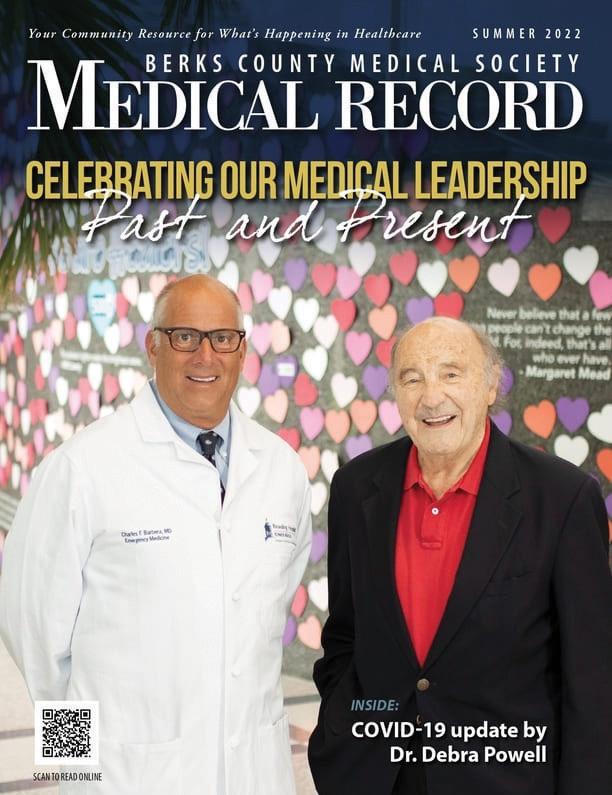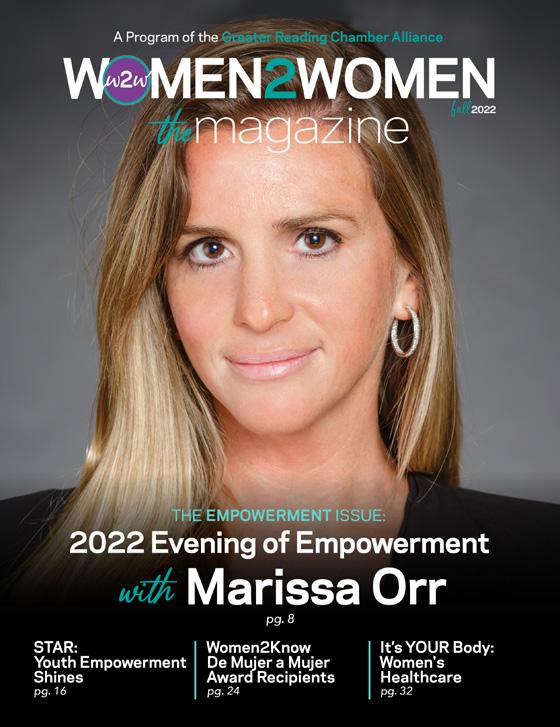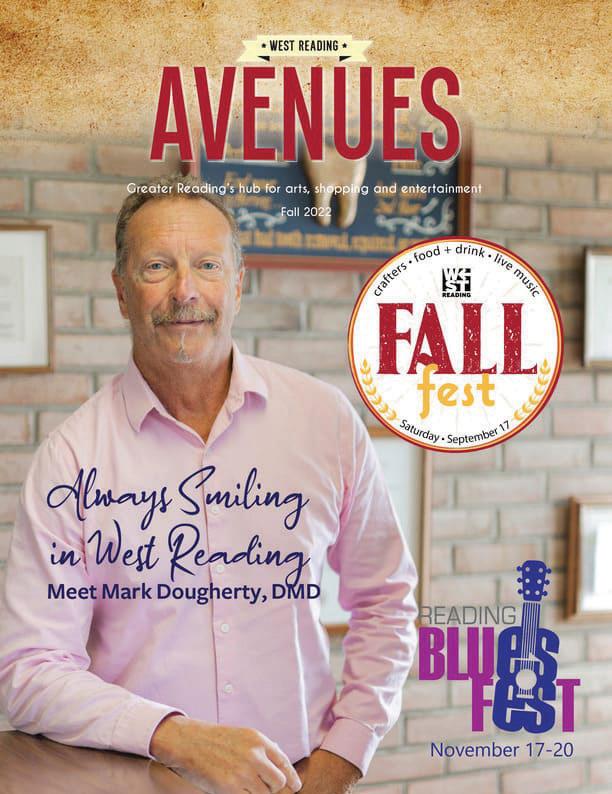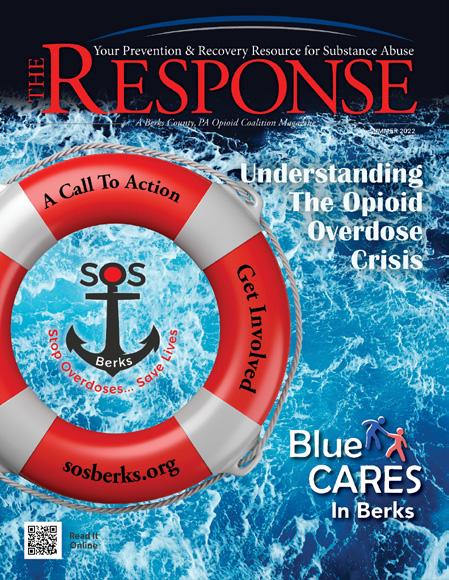
4 minute read
The “Tripledemic”
continued from page 23
As a parent myself, I can vouch for the fact that we are exhausted from all this illness! We all just want our babies to be ok and to stop getting sick! To any parents reading this, we see you, we hear you, and we are here for you! We are so grateful for the hospital staff who have worked tirelessly to provide that added level of support for those patients who cannot safely be managed at home or in our outpatient offices.
Medical Record: Dr. Powell, what are you advising patients regarding how to do their best to stay well and keep their families well? When should someone seek care from their physician/ provider and in particular when a higher level of care, such as a trip to the Emergency Department, is necessary? Are our health care facilities currently being overwhelmed? If so, we certainly do not want patients making unnecessary visits and overwhelming our Emergency Care staff.
Dr. Powell: The first layer of protection is to stay up to date on vaccinations, including the COVID-19 bivalent booster and the annual flu shot. Patients should be cautious and conscientious during holiday seasons. They should consider wearing a mask in large crowds and should wash their hands frequently. If they are sick, they should stay home and test for COVID-19 with a home test. They should seek care if they are having difficulty breathing or are not able to eat and drink appropriately. Although our case numbers for COVID-19 have declined, we continue to have surge plans in place to care for patients if the numbers of patients increase further.
Medical Record: Dr. Chmielowski, schools are always caught on the front lines when we are confronted with readily transmissible respiratory diseases. How should school districts approach surges like we have experienced? Are vaccine mandates for school children (which we have had for years) important and necessary? Were mask mandates in schools beneficial during the peak of the COVID-19 pandemic? Do you think we might see these again or were they counter-productive?
Dr. Chmielowski: I certainly don’t envy the administrators within the school districts who are responsible for creating and upholding health and safety plans, nor the school nurses who have been inundated daily with so many sick students. Also, a huge thank you to all the teachers who are literally putting their own health and safety at risk every day just by going to work. This is not what they signed up for! I would recommend that the schools continue to reinforce good hand hygiene, encourage families to keep their child/children home if they are sick, and have plans in place to handle situations where children are missing a lot of school due to illness. No one wants these children to fall behind academically. Vaccine mandates which have been in place for years for schools are certainly important and necessary. I honestly cannot imagine what things would be like if we were also having to deal with outbreaks of measles and chicken pox during this crazy time! Mask mandates during the peak of the COVID-19 pandemic certainly were beneficial and prevented transmission of not only COVID-19, but other respiratory illnesses. It will be interesting to see if those mandates will make a return in the event of another COVID-19 surge.
Medical Record: Dr. Powell, I hope it is not too early to take away some lessons from our Pandemic experiences over the past three years. What have we learned “good and bad” and how might such lessons help us prepare and respond better to recurrent as well as new emerging infectious diseases in the future?
Dr. Powell: The lessons learned are extensive, hard fought, and should not be forgotten. 1) We cannot let down our guard and de-fund public health. 2) Vaccinations save lives. 3) We need to respect microbes. We have become complacent regarding infectious diseases due to the advent of antibiotics and vaccines. The public has forgotten devastating infections such as polio, diphtheria, tetanus, and measles, for example. The public hasn’t seen patients affected with these infections and the morbidity and mortality caused by these diseases. 4) We must not politicize scientific research, treatment of infectious diseases, and immunization policies. 5) We understand, but the lay public doesn’t understand, that the scientific process adapts as we develop more information. This is not waffling on issues. This is the process of proposing a course of action, learning, and then modifying the course over and over again. 6) COVID-19 isn’t the last pandemic. We should anticipate that new viruses will emerge and that the current viruses will evolve, producing new variants. Infectious Diseases physicians have been forecasting a major influenza shift causing a flu pandemic. We are also seeing outbreaks of measles and polio in areas of the US among clusters of people with low vaccination rates.
Medical Record: Thank you both for your insightful comments and for all that you, your colleagues, and your staffs have done and continue to do to inform and care for the people of Berks County, especially through this time of the recent “tripledemic.”








Looking back at the General Assembly’s 202122 legislative session, PAMED’s legislative activity was robust. We saw the final passage of a number of bills in which PAMED was actively engaged. Additionally, PAMED was instrumental in blocking the passage of other proposals that were not consistent with our policy. The past year also marked the first time PAMED had been actively engaged in the budget process as we successfully secured additional funding for the state’s Primary Care Loan Repayment Program. This program provides loan forgiveness, presently up to $80,000, for physicians who choose to practice in a rural or underserved community for two years. PAMED secured an additional $2.5M to bring the program’s total allocation to $7M. This is the first time in more than a decade that the legislature has increased this line item.
While PAMED focused our advocacy efforts on the legislative arena, the undercurrent of “politics” seemed pervasive in 2022, as many legislators turned their focus towards the electoral process. While always sensitive to the politics that drives the development of public policy, PAMED successfully highlighted the impact that some legislative proposals would have on both physicians and the patients they treat. It will come as no surprise, especially to those who follow policy making at both the Federal and State level, that political discord has reached an all-time high. The legislative process should be about compromise. But it seems that the proverbial “middle ground” no longer exists in the traditional process of legislative compromise. Instead, both sides of the aisle are entrenched in their beliefs and reluctant to give in to the other side. Though exceptions do exist…they’ve just become harder to find.

